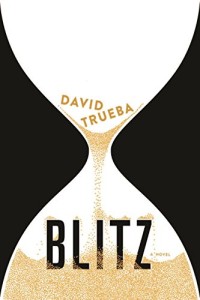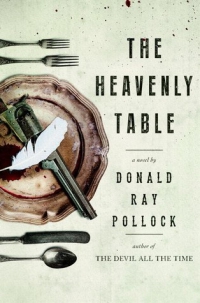Blitz by David Trueba
 Wednesday, September 7, 2016 at 9:20AM
Wednesday, September 7, 2016 at 9:20AM 
Published in Spain in 2015; published in translation by Other Press on August 30, 2016
Beto Sanz is an unsuccessful landscape architect from Madrid. He is currently the sole member of his firm, although he appreciates the suggestions made by Marta, his lover and roommate. The economy is bad and Beto is entering European competitions, attempting to attract attention with fanciful ideas. At a competition in Munich, Beto submits the idea of an urban park that is filled with large hourglasses that will encourage people to reflect on how they will use their passing time.
Unfortunately, Beto's relationship with Marta comes to an abrupt end, which puts Beto in a funk early in the novel. He later finds himself attracted to an older woman he meets at the Munich conference. It is an attraction he cannot explain and that he finds vaguely embarrassing, at least when he sees himself through the eyes of others. In conversation with the woman, Beto explores the nature of failed relationships. Much of the novel, in fact, consists of Beto’s reaction to his breakup, as Beto shares his thoughts with the reader or converses with friends in Spain via text or Skype.
Blitz features some interesting discussions about the competing philosophies of landscape architecture, particularly parks: should the architect try to give people a comfortable place in which they can rediscover themselves by rediscovering organic life, or is it the mission of the architect to shake people up, to challenge them with discomfort? Beto muses about the importance of parks (what would a city be without them?) and how park development is nevertheless the first item to be cut from a municipal budget during an economic downturn. The discussions are wide-ranging, as characters debate competing philosophies of industrial design and cosmetic surgery.
The second part of this short novel is shorter than the first. It is told in a series of brief recaps of Beto’s life, month-by-month, after he leaves Germany. It eventually ties into the first part in a way that provides a satisfying (if somewhat predictable) resolution to Beto’s growing frustration.
The beauty, appreciation, and meaning of life, as reflected in relationships with people and parks and objects, are an important subject of Blitz. The novel is also about self-discovery, but its strongest theme is the discovery of improbable love in unlikely ways and the heart’s defiance of social conventions. Illustrations and reproductions of paintings give a visual boost to the story. In the end, Blitz is like a pleasant story that an old friend might tell to explain what happened during his absent years.
RECOMMENDED



